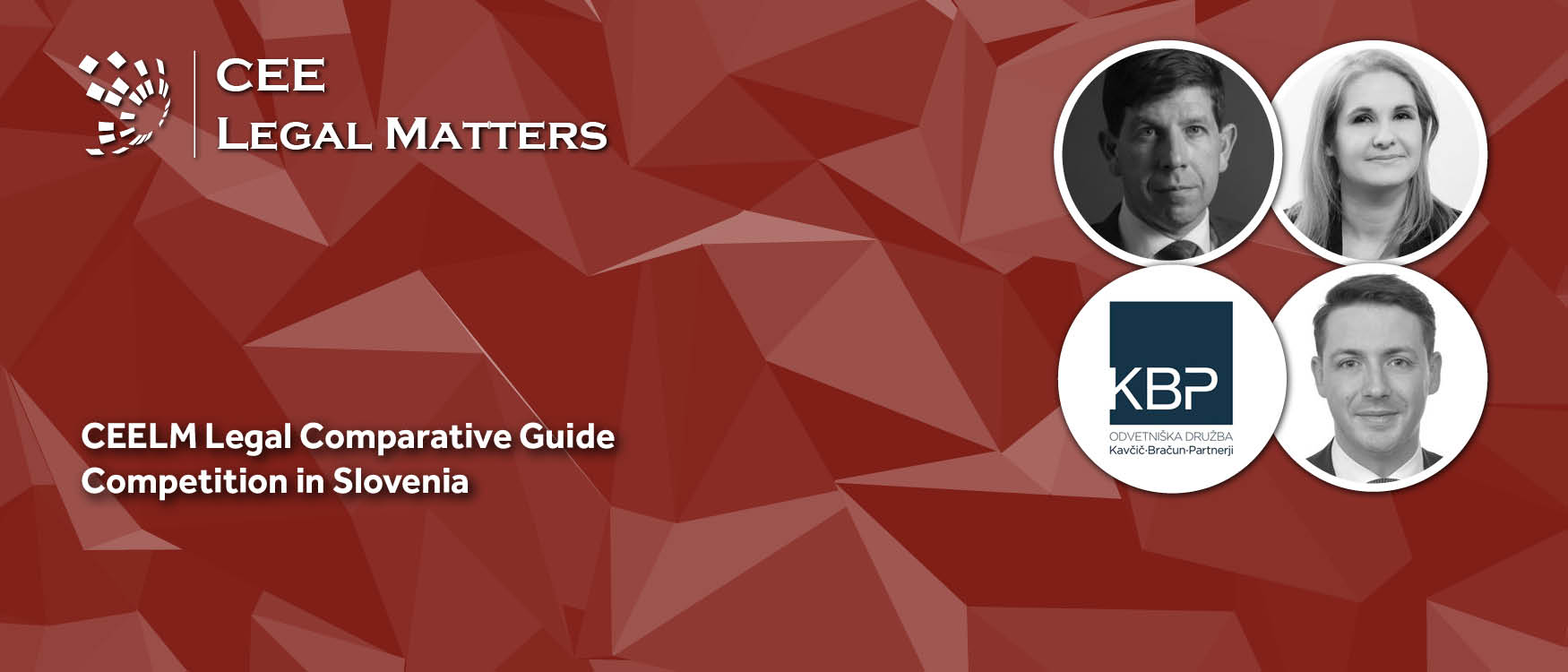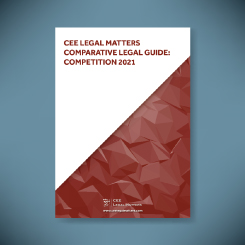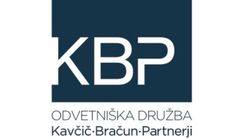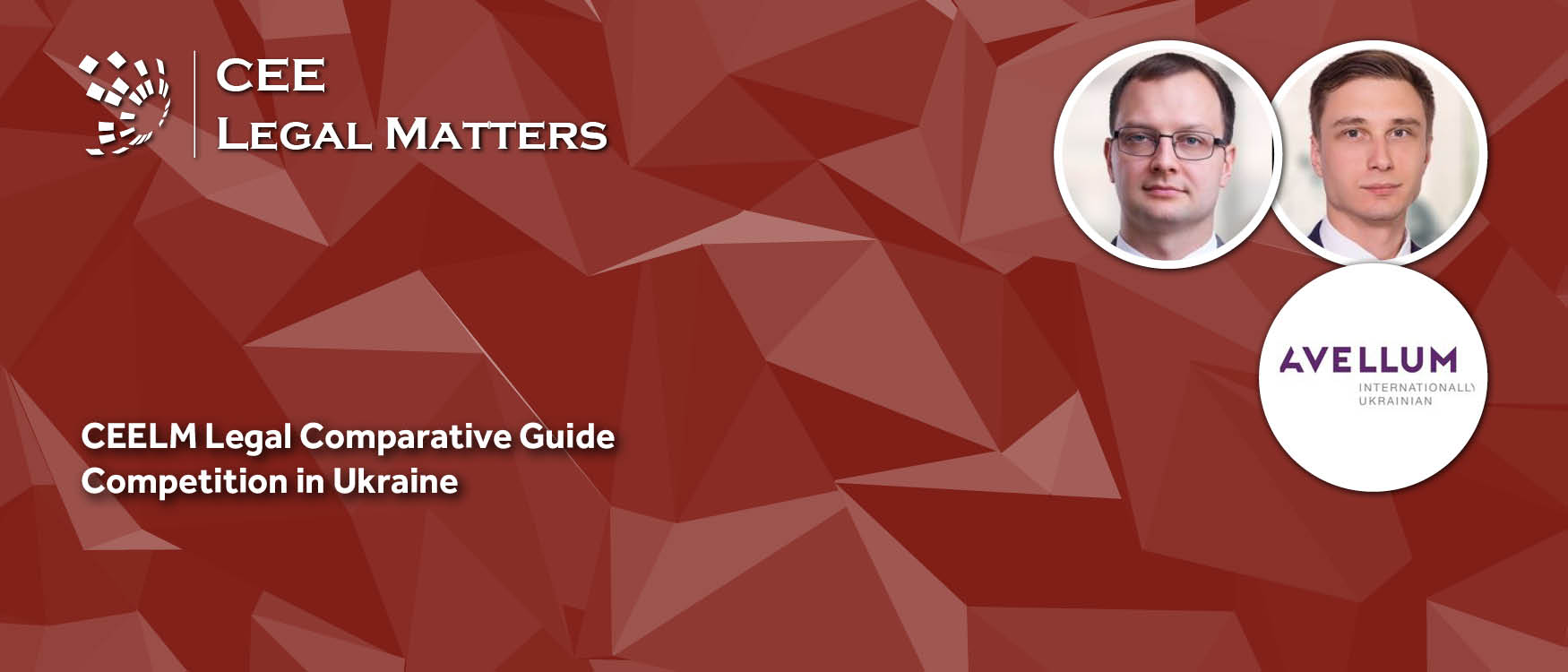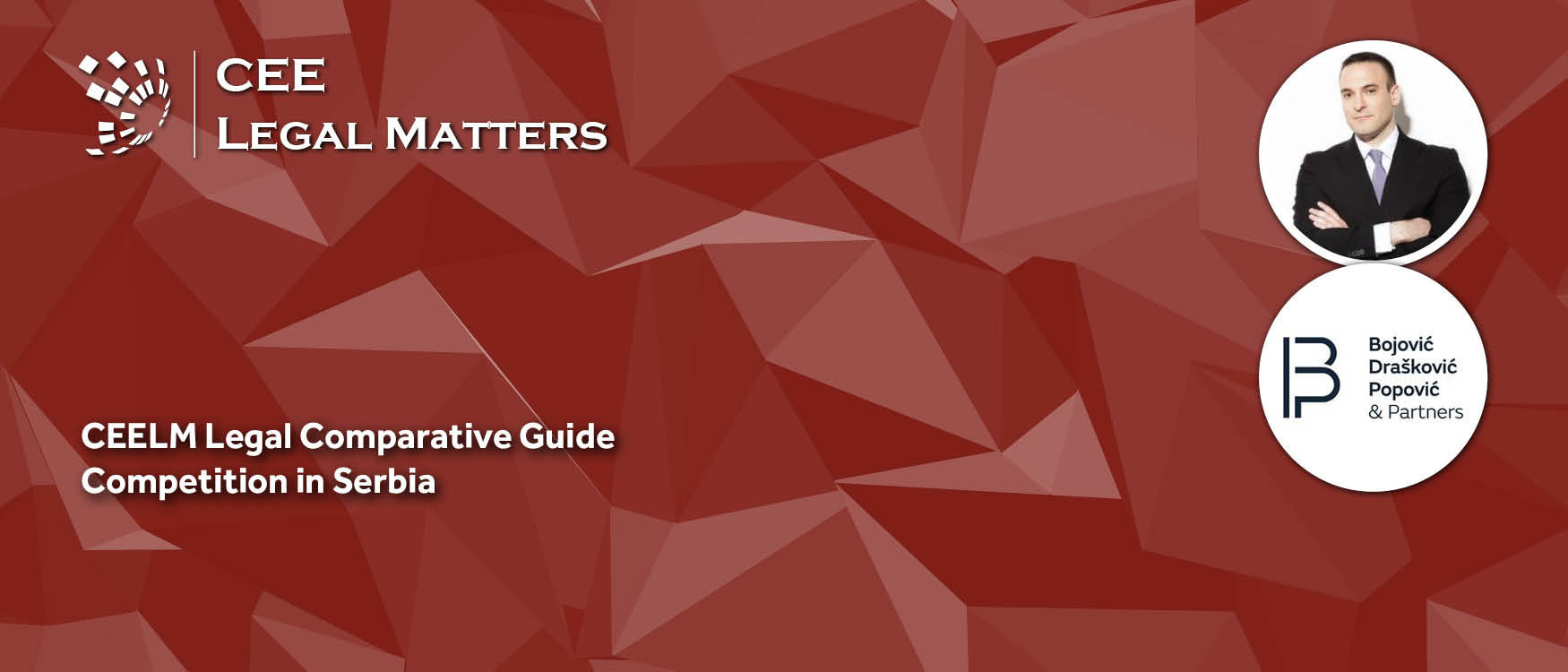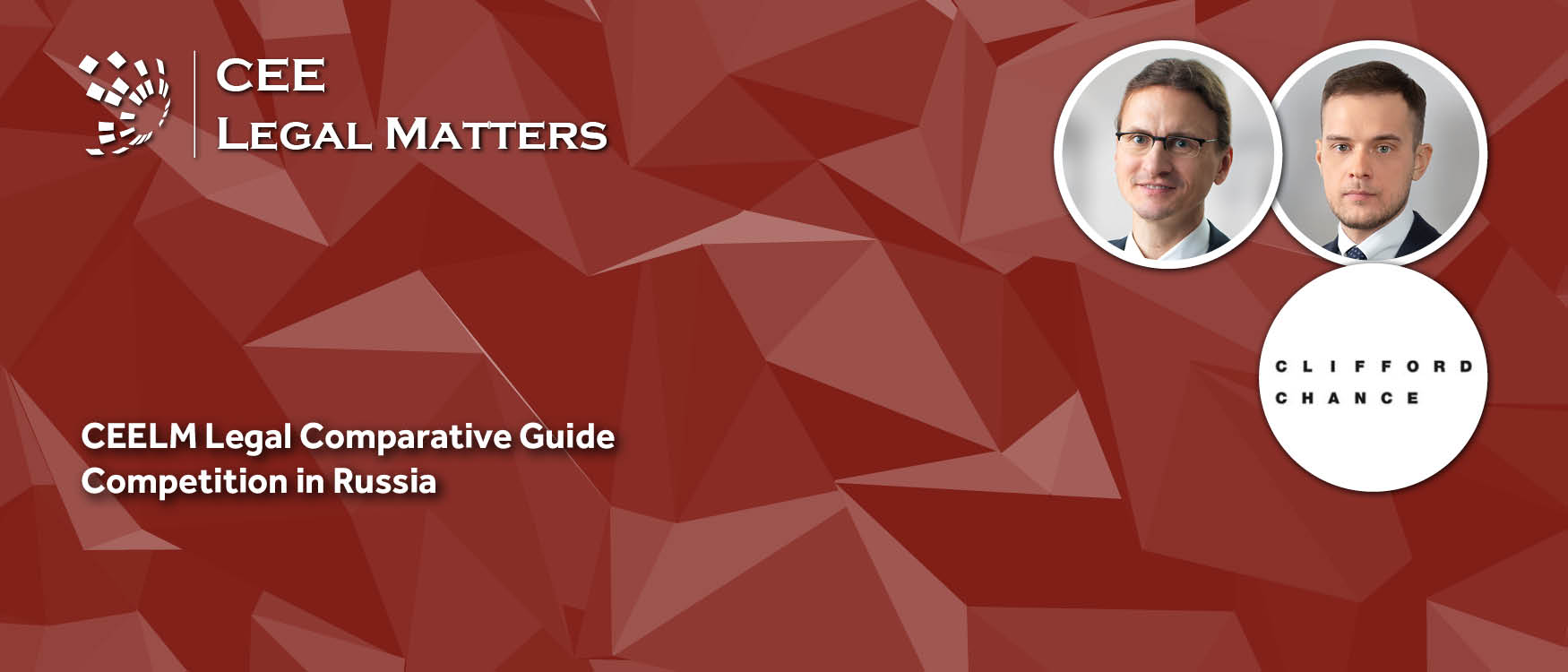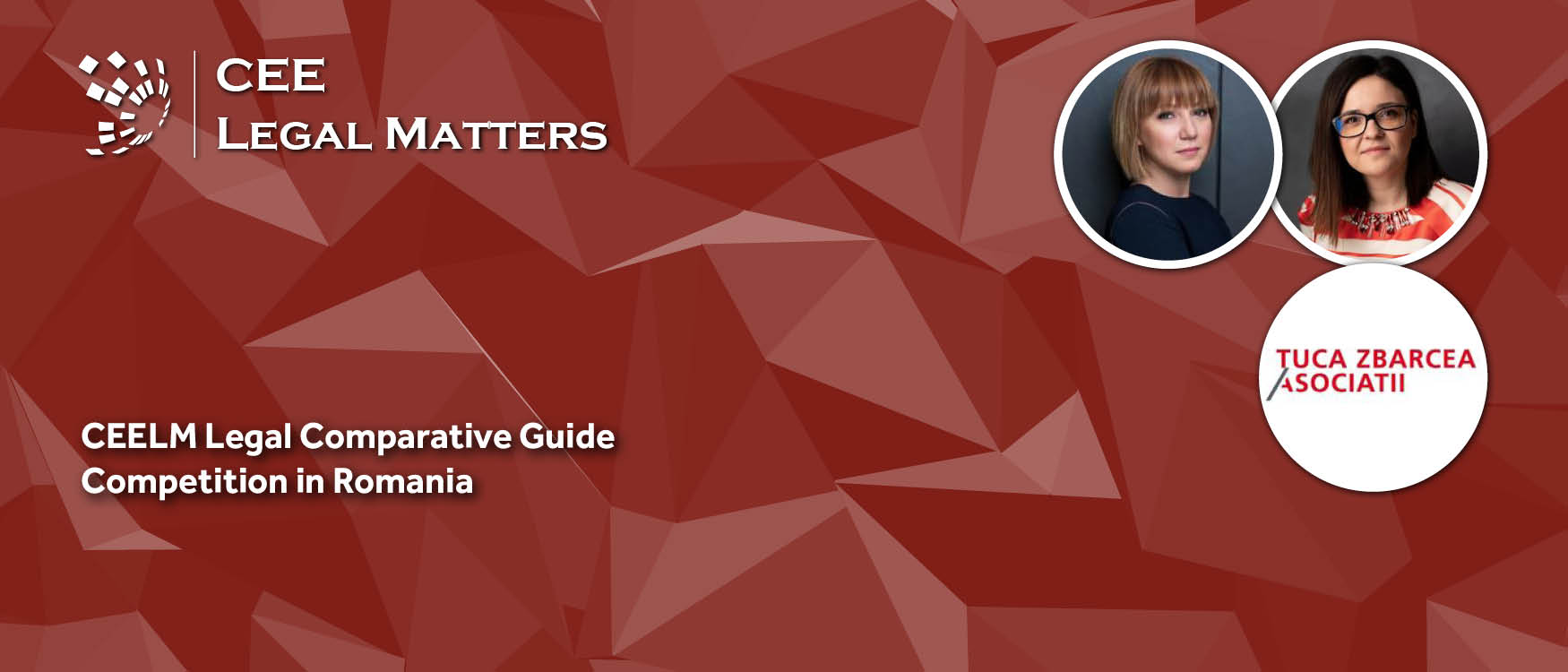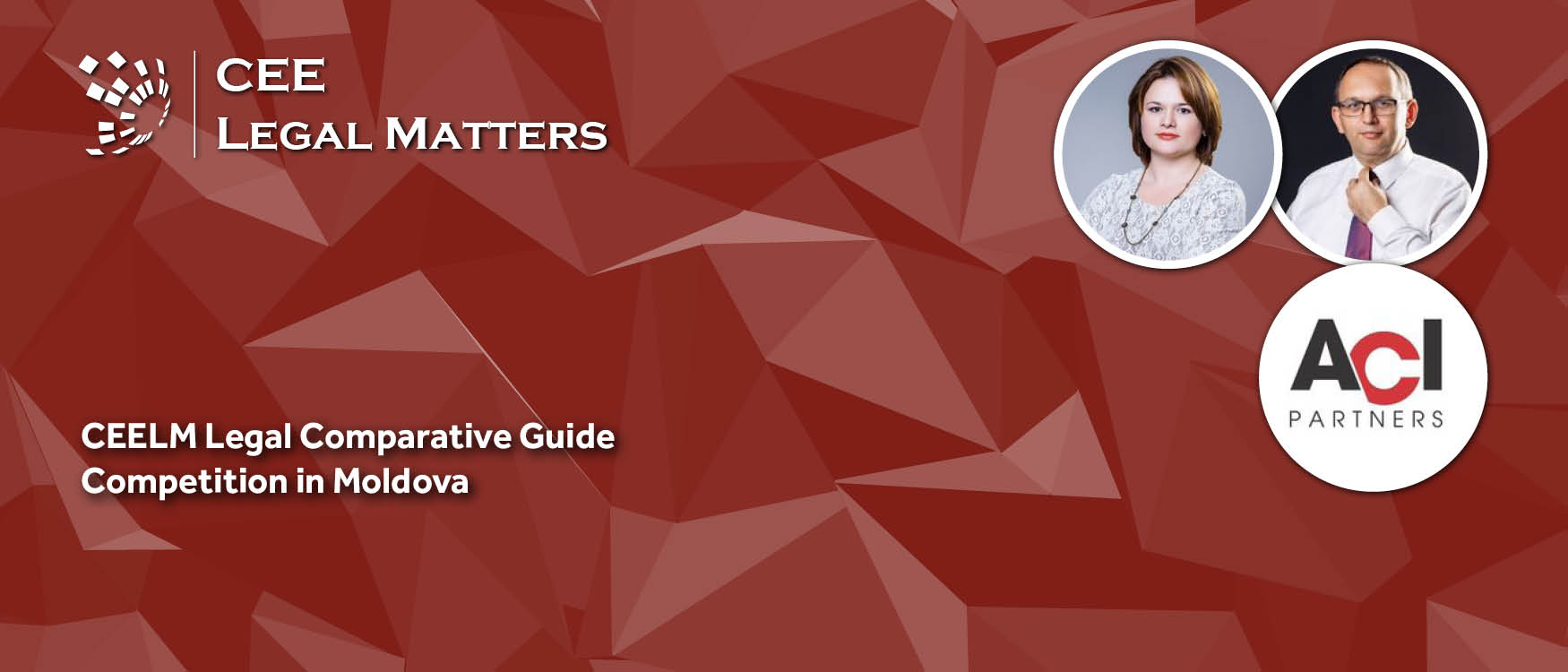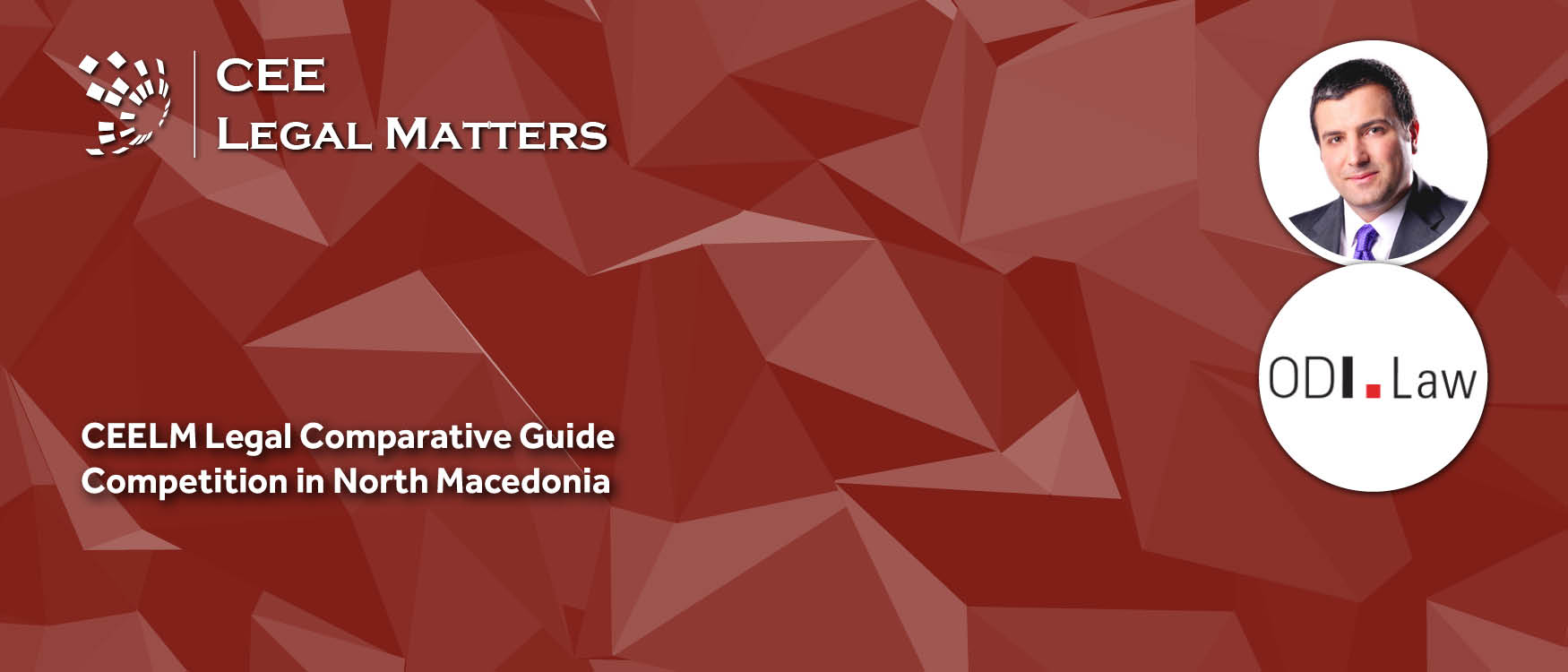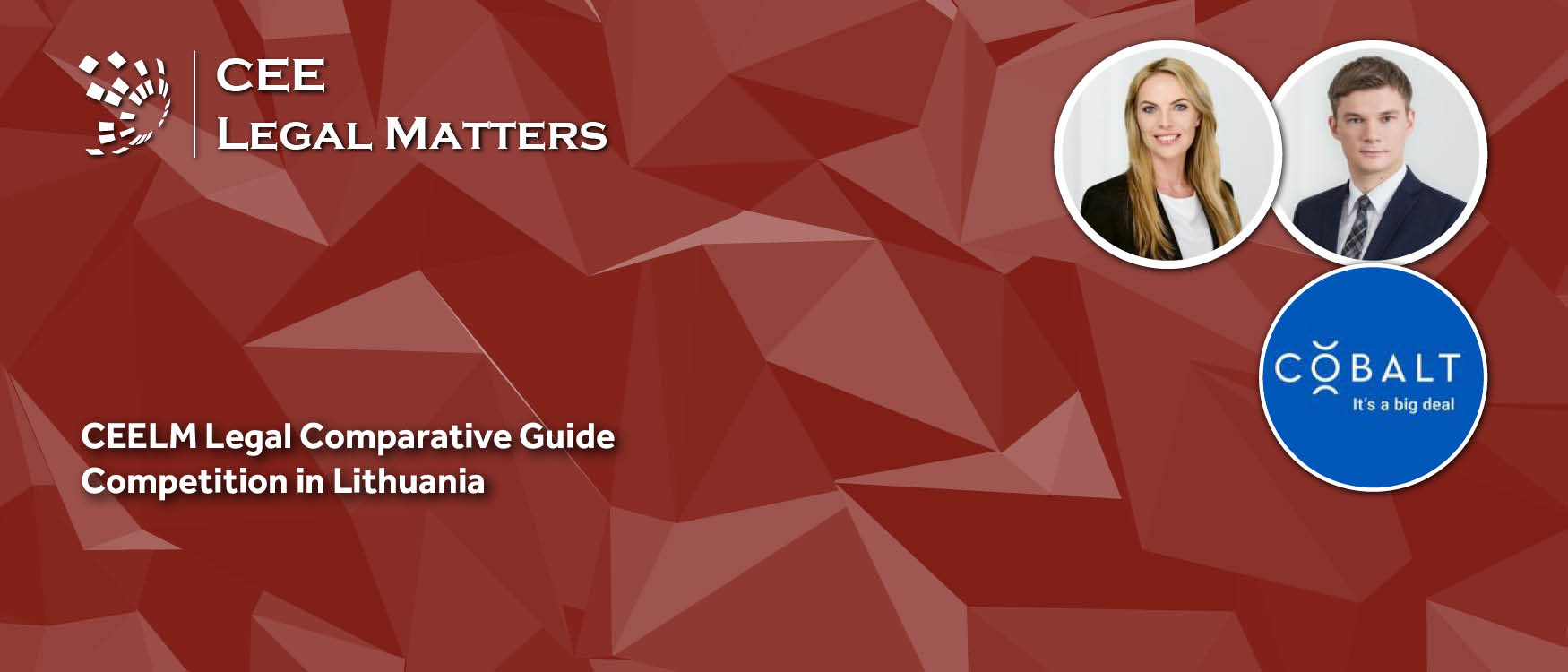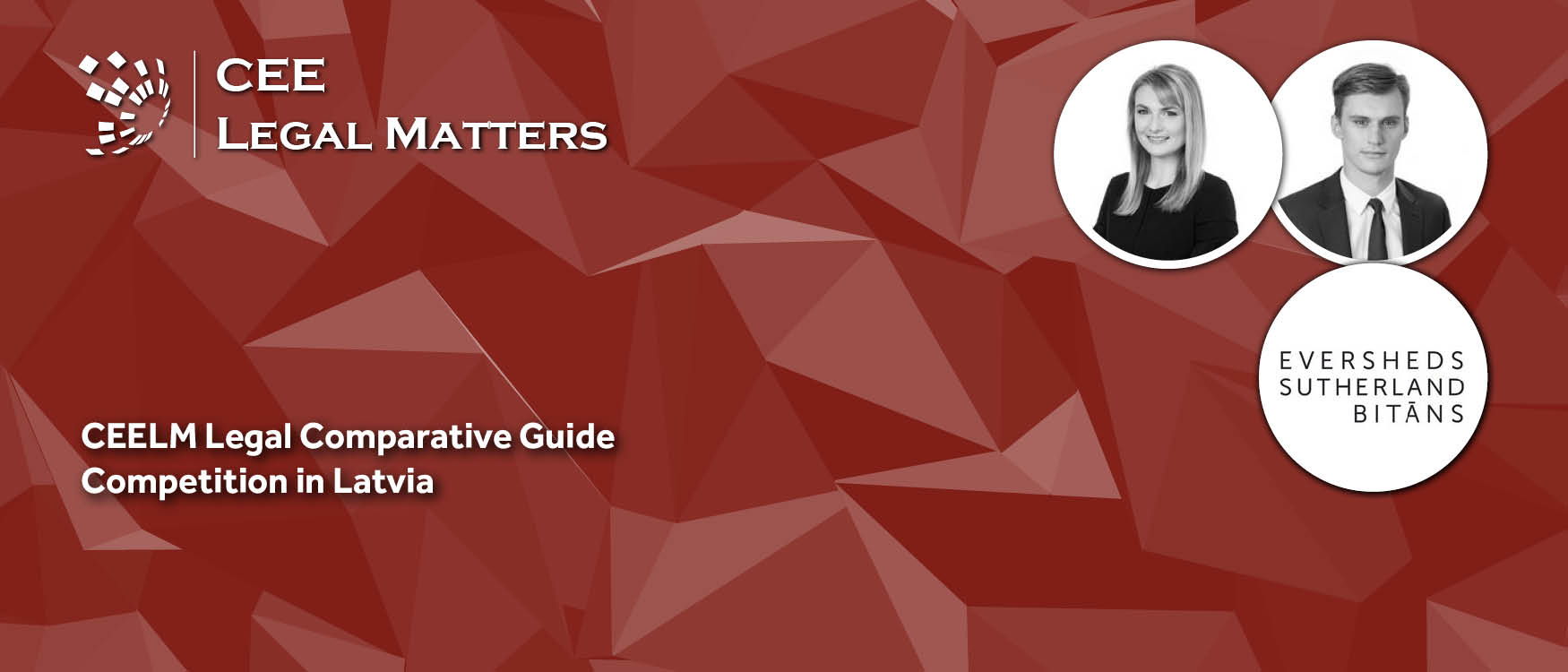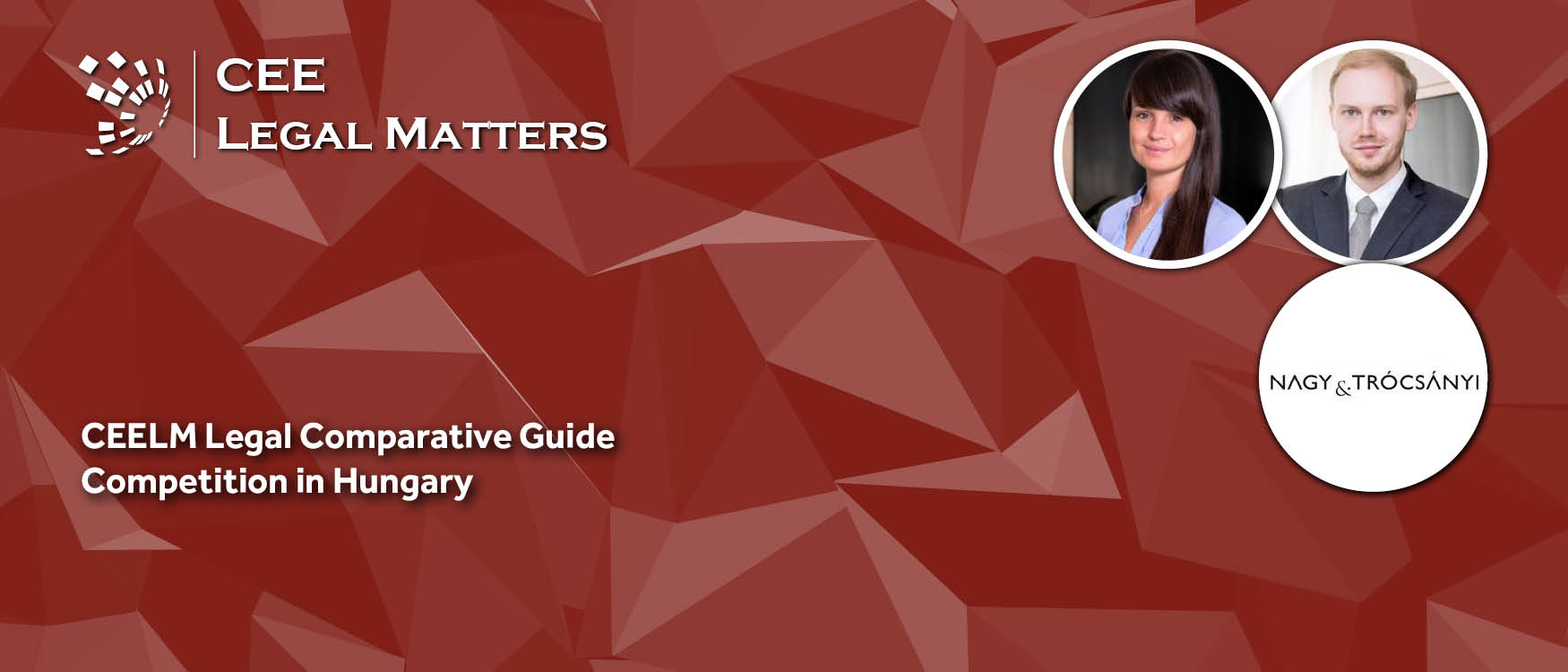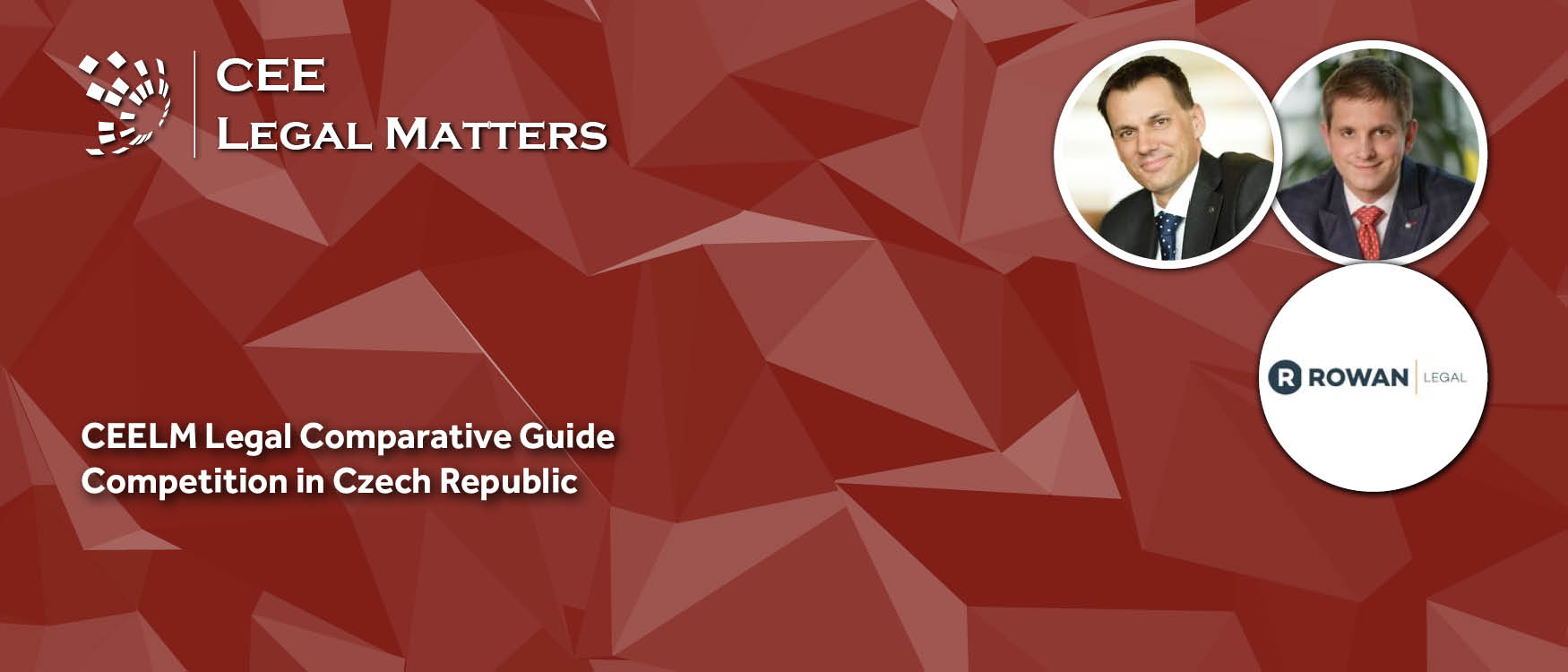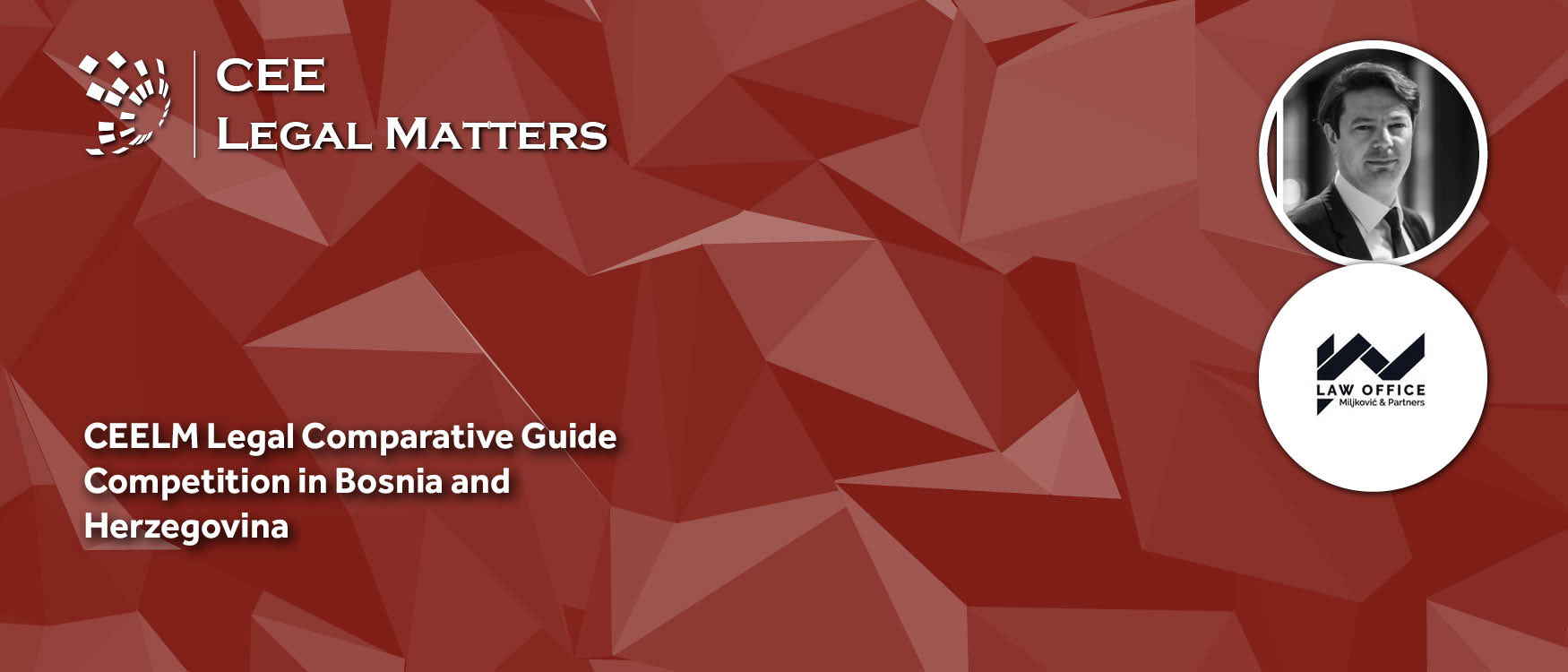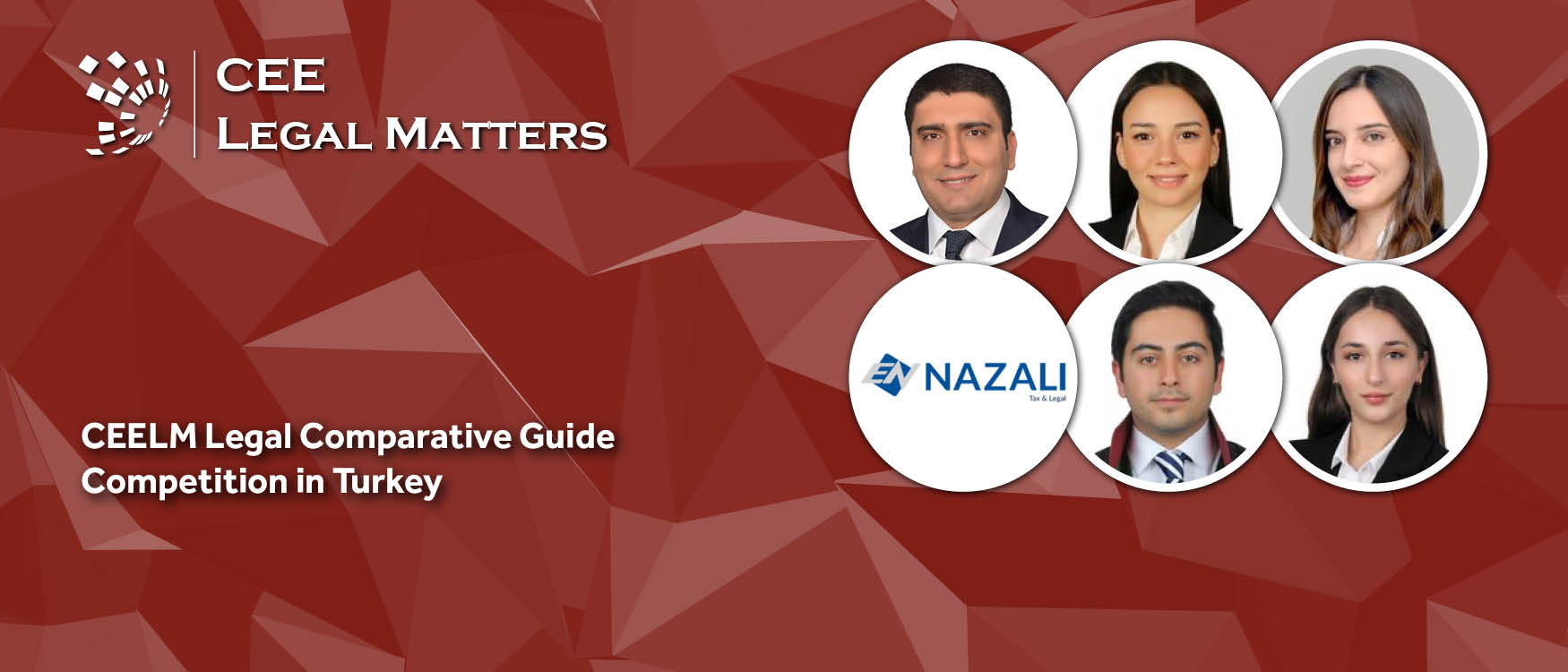Contributed by Kavcic, Bracun & Partners.
1. What are the main competition-related pieces of legislation in the Republic of Slovenia?
Competition law in the Republic of Slovenia is primarily regulated by the Prevention of Restriction of Competition Act (ZPOmK-1), along with the directly effective and applicable European Union laws. Two competition law implementing acts are in effect, namely (i) Decree on the procedure for granting immunity from, and reduction of, fines for offenders who are parties to cartels, and (ii) Decree on the concentration of companies notification form. Additionally, the Criminal Code prescribes a criminal offense of illegal restriction of competition. Furthermore, certain sector-specific acts also include provisions concerning competition, such as the Mass Media Act, which especially provides for certain additional restrictions regarding concentrations, and the Agriculture Act, which provides for specific regulation of both material and procedural aspects (including certain fines/consequences) of certain prohibited acts for undertakings with substantial market power.
2. Are there any notable recent (last 24 months) updates of the Slovenian competition legislation?
There have not been any notable updates in the competition legislation in the Republic of Slovenia within the last 24 months. Regardless, in February, the Ministry of Economic Development and Technology proposed a new Prevention of Restriction of Competition Act (ZPOmK-2), which is currently in interdepartmental coordination, with no specific set deadlines for its adoption. The proposed act inter alia envisions a new joint procedure for the imposition of penalties on legal entities breach competition rules and provides for transposition of the provisions of Directive (EU) 2019/1 of the European Parliament and of the Council of December 11, 2018, to empower the competition authorities of the Member States to be more effective enforcers and to ensure the proper functioning of the internal market.
3. What are the main concerns of the national competition authority in terms of agreements between undertakings? How about the sanctioning record of the authority?
The Slovenian Competition Protection Agency (Javna agencija Republike Slovenije za varstvo konkurence; CPA) considers as its priority the most serious violations stemming from the anti-competitive agreements. No further division that would indicate a higher priority of certain specific issues was indicated by the CPA in its publicly available communications.
Fines for competition law infringements in the Republic of Slovenia are set in the misdemeanor procedure, which is usually conducted as a follow-on procedure to administrative proceedings, in which a competition infringement is identified and any remedies set. The competition law proceeding is thus two-fold and consists of separate administrative and misdemeanor proceedings. The sanctioning record of the CPA is difficult to assess since case law is limited. The majority of recent proceedings concerning potential anti-competitive agreements ended already in the administrative proceeding with the adoption of a commitment decision. Therefore, no decision in misdemeanor proceeding was issued in those instances. According to publicly available information, the last decision with which the CPA imposed a fine in a misdemeanor proceeding for an anti-competitive agreement was issued in December 2018. With that decision, the CPA granted for the first time full immunity from fines to the leniency applicant (including to the responsible individual). Nevertheless, the procedure was subsequently stopped by the court since the prosecution was considered to be time-barred.
4. Which competition law requirements should companies consider when entering into agreements concerning their activities on Slovenian territory?
The CPA regularly studies and follows the recent practice of the European Commission and the Courts of the European Union, along with their guidelines. The competition law requirements when entering the agreements on Slovenian territory are therefore in the majority of instances the same or at least very similar to those developed within the European Union. Consequently, the requirements and prohibitions set and developed in European Union law are thus applicable and should be considered.
5. Does a leniency policy apply in the Republic of Slovenia?
Leniency policy in the Republic of Slovenia is applicable and is modeled on the European Commission’s leniency policy. It is regulated by the Prevention of Restriction of Competition Act (ZPOmK-1) and the Decree on the procedure for granting immunity from, and reduction of, fines for offenders who are parties to cartels. The CPA acknowledges the potential of leniency policy for the purpose of detection of cartels and considers the raising of awareness regarding leniency proceeding as one of its priorities.
6. How is unilateral conduct treated under Slovenian competition rules?
Under Slovenian competition rules, unilateral conduct is regulated with a prohibition of abuse of dominant position, which is modeled on the prohibition under Article 102 TFEU. Dominant position is defined as an ability of an undertaking to act to a significant degree independently of its competitors, clients, or consumers. Furthermore, a dominant position is presumed in cases of market share of an undertaking in the territory of the Republic of Slovenia above 40% or, in the case of joint dominance, a market share of more than 60%. Abuse is not defined in the ZPOmK-1, but only a non-exhaustive list of examples is noted, such as in the event of a dominant undertaking (i) directly or indirectly imposing unfair purchase or selling prices, or other unfair trading conditions, (ii) limiting production, markets or technical development to the prejudice of consumers, (iii) applying dissimilar conditions to equivalent transactions with other trading parties, thereby placing them at a competitive disadvantage, or (iv) making the conclusion of contracts subject to the acceptance of supplementary obligations which, by their nature or according to commercial usage, have no connection with the subject of such contracts.
7. Are there any recent local abuse cases of relevance?
There have not been any recent local abuse cases of relevance, with the majority of proceedings in recent years ending with a commitment decision. The latest commenced procedure by the CPA (date of commencement July 13, 2017) concerned the alleged abuse of Renault Nissan Slovenija, d.o.o., wherein the company allegedly discriminated between authorized and unauthorized mechanics in regard to the access to the technical information and technical trainings for Renault brand cars and thus placed unauthorized mechanics in a competitive disadvantage. The latest decision by the CPA (date of decision December 24, 2020) concerned the alleged abuse of the Panteon Group d.o.o., which allegedly occurred due to the company’s refusal or inadmissible conditioning of a transfer of technical information, required for the establishment of interconnections between the company’s network and the network of the competitor, to that competitor acting as a provider of electronic data exchange services, with which effective competition was allegedly restricted. Both cases ended with a commitment decision. Based on the publicly available information, the most recent case of alleged abuse, which is not yet closed, concerns the conduct of Pro Plus d.o.o. in the field of distribution of audio-visual content. That case started on February 1, 2017, with no further publicly available information.
8. What are the consequences of a competition law infringement?
The competition law system in the Republic of Slovenia consists of separate administrative and misdemeanor proceedings, with consequences varying depending on the procedure at hand. In the administrative procedure, the CPA can order the undertaking to stop with the infringement and may also impose on the undertaking certain measures, which it deems suitable to remedy the infringement and its consequences, such as the sale of activity, transfer of intellectual property rights, etc. The CPA can also find the anti-competitive conduct to be null and void. Additionally, the CPA may inter alia in certain instances revoke certain decisions, such as the commitment decision, or the decision on the compatibility of concentration, and commence with the proceeding.
Fines for competition law infringements are set in the misdemeanor procedure, which is usually conducted as a follow-on procedure to administrative proceedings. The CPA can impose a fine of up to 10% of the undertaking’s annual turnover in the preceding business year for the restrictive conduct (anticompetitive agreements, abuse of dominant position, violation of commitment decision, etc.) and up to 10% of the annual turnover of undertakings concerned along with their related entities in the preceding business year for concentration-related violations (failure to notify or suspend transactions pending clearance, violation of decision on incompatibility of concentration, etc.). The responsible person may be subject to a fine from EUR 5,000 to EUR 30,000.
The limitation period is five years from the occurrence of a violation of competition law, but in any case, the procedure for the imposition of fines is not allowed to be started after ten years from the occurrence of the breach.
Undertakings and the responsible persons may additionally be held criminally liable for the criminal offense of illegal restriction of competition pursuant to Article 225 of the Criminal Code, with the prison sentence envisioned in a span from 6 months to 5 years. In that regard, the Liability of Legal Persons for Criminal Offences Act provides for certain penalties for legal entities for the violation of the above-mentioned criminal offense. The penalties are in particular the (i) penalty payment of at least EUR 50,000 or at most the amount of two hundred times the resulted damage or unlawfully acquired proceeds, obtained with a criminal offense; (ii) confiscation of assets of legal person (instead of penalty payment); and (iii) cessation (start of liquidation proceedings) of the legal entity, if the business/activity of the legal person was in total or to a large extent used for the execution of criminal offenses (instead of penalty payment). Furthermore, for a certain period of time, a prohibition to conduct certain business activities of the legal entity and a prohibition of disposal with the company’s securities may also be imposed, while any monetary benefit obtained with or due to the criminal offense can be taken.
Additionally, note that the undertakings may also be subject to a private damages proceeding.
9. Is there any competition law requirement in case of mergers & acquisitions occurring or impacting the Slovenian market?
Mergers & acquisitions need to be notified to the CPA in the event that both legal and economic conditions are fulfilled. The legal condition is fulfilled in the event of a change of control on a lasting basis over an undertaking. This could occur due to (i) the merger of two or more previously independent undertakings or part of undertakings, (ii) the acquisition of direct or indirect control over the whole or parts of one or more other undertakings, or (iii) the establishment of a full-function joint venture. As part of the economic condition, the following merger control thresholds for the obligation to notify the merger to the CPA currently apply:
- joint annual turnover on the Slovenian market in the business year prior to the merger of all the undertakings concerned jointly must be above EUR 35 million, and
- either:
- annual turnover on the Slovenian market in the business year prior to the merger of the target is at least EUR 1 million, or
- in cases of joint ventures annual turnover on the Slovenian market in the business year prior to the merger of at least two undertakings concerned is above EUR 1 million (at least two parties must each individually achieve a turnover of EUR 1 million in Slovenia for this threshold to be met).
With a requirement that annual turnover in the Slovenian market is the only relevant turnover for the establishment of a merger control threshold and especially with a requirement that the target must have an annual turnover in Slovenia, merger control is limited to mergers having a possible effect on the Slovenian market.
If EU thresholds are met, a merger does not have to be notified to the CPA but should be notified to the European Commission only.
In addition, companies must inform the CPA of the mergers in which, the above stated, thresholds are not met, but undertakings concerned have a joint market share on the relevant market in Slovenia above 60%. In this case, the CPA can, at its sole discretion, decide within 15 days from receiving such information to ask the companies to notify such mergers. Following such a request from the CPA, notification is mandatory and the same rules as for the other notified mergers apply. There is, however, no implication for parties that do not approach the CPA in such circumstances (although where the CPA requires a notification, this request must be complied with).
In cases where the jurisdictional thresholds are met, notification is mandatory, and a stand-still obligation applies until a final decision by the CPA. Furthermore, a stand-still obligation applies to the mergers, which do not reach annual turnover thresholds, if the CPA requires parties to notify a merger due to high market shares (see above), from the day when parties are informed about the CPA’s request to notify. Notifying parties can, however, ask the CPA to allow them to exercise rights from the merger if this is required to safeguard the value of the intended investment or for the performance of services in the public interest.
10. What is the normal merger review period?
ZPOmK-1 provides only an indicative and non-mandatory timeline regarding the merger review. The review period, therefore, varies depending on the potential contentiousness of the notified merger, with the indicative timeline being the following.
The deadline for filing a notifiable transaction is 30 days after the conclusion of the contract, the announcement of the public bid, or the acquisition of a controlling interest, whichever is first. In cases where the CPA requires parties to notify a merger due to their high market shares, a 30-day deadline for filling notification starts to run from the day when parties are informed about the CPA’s request to notify.
For a review of the merger by the CPA, there is only an indicative timetable, which is not binding for the CPA. Within 25 business days from the receipt of the complete notification the CPA should issue:
- a decision finding that the notified merger is not notifiable,
- a decision clearing the notified merger (first phase decision), or
- an order commencing a second-phase review.
In cases where the notifying parties offer remedies in the first phase, the deadline for issuing a first phase clearance decision or commencement of a second phase is prolonged for an additional 15 business days.
In a second phase review, the CPA should issue a decision clearing or banning the merger within 60 business days from the issuing of an order on the commencement of the second phase review. In cases where the notifying parties offer remedies in the second phase, the deadline for issuing a decision is prolonged for an additional 15 business days.
Note that “business days” excludes any days when the CPA does not work, namely weekends and public holidays. The deadline runs from the day after the day on which a full and complete notification is received by the CPA. The CPA however is not obliged to issue a confirmation of completeness, so it is difficult to assess when the indicative timeline would start to run.
11. Are there any fees applicable where transactions are subject to local competition review?
For the purpose of merger review, an administrative fee in the amount of EUR 2,000, determined by the Administrative Fees Act, is payable.
12. Is there any possibility for companies to obtain State Aid in the Republic of Slovenia? If yes, under what conditions?
State Aid may be obtained in the Republic in Slovenia, under the conditions prescribed by the Treaty on the Functioning of the European Union (Articles 107, 108, and 109).
13. What were the major changes brought by the COVID-19 crisis in the field? How likely is it for these changes to stick?
The COVID-19 measures that concerned the CPA were primarily focused on procedural aspects, i.e. the deadlines and method of submissions. These changes are no longer in place. Nevertheless, during the COVID-19 lockdown(s), the CPA changed its approach regarding communication, with more communication occurring via electronic messages as well as meetings taking place online. This practice has so far stuck and is still present.
There were no changes with respect to the application of substantive rules or evaluation of cases by the CPA.

